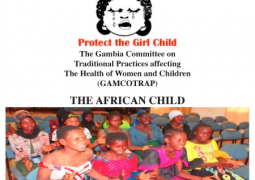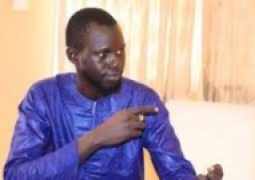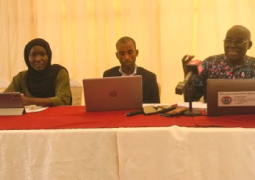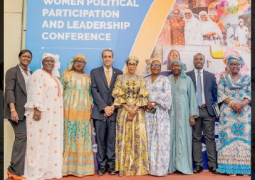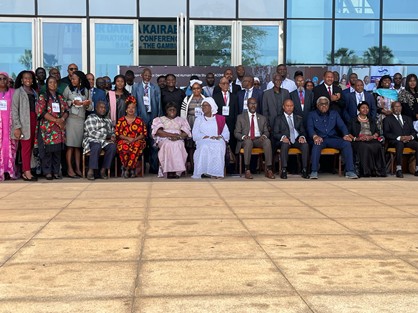
The event served as a platform for dialogue, reflection, and strategy development on reparations as a pathway to justice, equality, and empowerment across Africa.
Delivering the opening statement, Hannah Forster, Executive Director of ACDHRS, emphasised that the forum aims to deepen understanding of reparations as a route to healing and justice for Africans and people of African descent. She underscored the importance of connecting the reparations agenda to broader governance issues, civic space, environmental justice, and the protection of vulnerable groups.
“This platform allows NGOs and stakeholders to engage, share experiences, and strengthen networks for collective advocacy, ”she stated while welcoming over 40 first-time participants, including newly trained environmental advocates and religious leaders.
Corlette Letlojane, member of the NGO Forum Steering Committee, hailed the African Union’s efforts to advance reparatory justice, describing it as a “monumental step” toward addressing historical injustices rooted in slavery, colonialism, and racial discrimination.
She reflected on the Durban Declaration and Programme of Action (2001), which recognised people of African descent as victims of the transatlantic slave trade and colonialism. Letlojane linked these legacies to present-day challenges - economic inequality, displacement, and structural racism arguing that reparations represent both acknowledgment and redress.
“The call for reparations is not just about correcting the past,” she said, “it’s about creating a future where equality and justice are lived realities for every African.”
She also urged African states to confront new challenges such as statelessness, migrant discrimination, and what she described as “black-on-black violence” emerging from post-colonial fragmentation.
“We must return to the founding principles of unity and solidarity that defined Africa’s liberation struggles,” she added, calling for renewed continental cohesion and respect for the dignity of all people of African descent.
Representing the United Nations Office of the High Commissioner for Human Rights (OHCHR), Yvonne Fungai Tawanda Masarakufa, Human Rights Adviser in The Gambia, reaffirmed the UN’s commitment to supporting African civil society in promoting reparatory justice. She praised ACDHRS for maintaining a strong partnership with the UN and for providing an enduring platform for grassroots advocacy and dialogue.
“Reparatory justice is not only about addressing historical wrongs,” Masarakufa said, “it’s about reshaping today’s systems to guarantee non-repetition and ensure future generations inherit dignity, not discrimination.”
She explained that reparations should be inclusive and accessible, especially to marginalised groups such as women, persons with disabilities, and indigenous peoples. Masarakufa further outlined OHCHR’s practical support in building capacity, strengthening evidence-based advocacy, and facilitating access to international human rights mechanisms.
Speaking on behalf of the Attorney General and Minister for Justice of The Gambia, Solicitor General Hussein Thomasi declared the forum officially open. He commended the resilience of civil society and recognised the progress made in aligning domestic laws with international human rights standards.
However, Thomasi acknowledged persistent challenges across the continent ranging from conflicts and displacement to suppression of civic freedoms and weak judicial independence.
“While commendable progress has been achieved, grave challenges remain. Conflict, authoritarianism, and corruption continue to undermine human rights and democratic governance across Africa,” he said, urging collective efforts to restore civic trust and uphold the rule of law.
Gilbert Sebihogo, Executive Director of the Network of African National Human Rights Institutions (NANHRI), stressed the need for accountability and collaboration between national institutions and civil society. He reminded participants that NHRIs are evaluated based on their independence and credibility, and encouraged NGOs to use the accreditation process to strengthen institutional performance.
Sebihogo linked the reparations debate to ongoing governance crises and shrinking civic space, warning that impunity for human rights violations perpetuates exclusion and injustice.
“Reparations must also embrace the African Diaspora,” he asserted. “They represent both the living legacy of Africa’s painful history and a source of resilience. Strengthening ties between African institutions and the Diaspora is key to amplifying Africa’s voice in the global reparations movement.”


